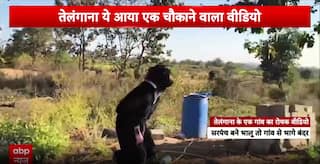Qutub Minar 'Right To Worship' Dispute: Delhi's Saket Court To Hear Petition Today
Earlier, due to the absence of the intervenor's attorney, Additional District and Sessions Judge Dinesh Kumar had delayed the session.

Delhi's Saket Court will be hearing the petitions on the 'right to worship' and the preservation of the idols discovered inside the Quwwatul Islam mosque within the ASI Protected Qutub Minar complex today.
Earlier, due to the absence of the intervenor's attorney, Additional District and Sessions Judge Dinesh Kumar had delayed the session.
ALSO READ | Shri Krishna Janmabhoomi-Shahi Idgah Mosque Dispute: Mathura Civil Court To Hear Review Petition Today
An earlier judge had also postponed judgement on the petitions submitted by the Hindu Petitioners, who wanted entry and the right to pray in the historical site.
The ASI stated in its written response to the court that the intervention is unsustainable and should be denied. The ASI's lawyer, Subhash C Gupta, told the court that the plea had "no locus standi."
ALSO READ | India, China Pull Back Troops From Patrolling Point 15 In Eastern Ladakh
Kunwar Mahender Dhwaj Prasad Singh, who claimed to be the 'descendant of Tomar King' of Delhi, had already filed an intervention petition.
According to the appeal, the property and the Qutub complex 'belong' to Singh's family, and the government has no jurisdiction to issue orders or make judgments concerning the territory surrounding Qutb.
ALSO READ | India Calls Out Sri Lanka At UNHRC Over ‘Lack Of Progress’ On Solution To Tamil Ethnic Issues
Singh's claim has been challenged by both the Archaeological Survey of India (ASI) and Hindu petitions.
The petitions were filed by Hindu petitioners who asked the Supreme Court to grant them the freedom to worship and pray in the Quwwatul Islam mosque after Lord Narsingh statues were purportedly discovered on the premises.
The argument emerged after former ASI regional director Dharamveer Sharma stated that the Qutb Minar was built by Raja Vikramaditya rather than Qutb al-Din Aibak.






































